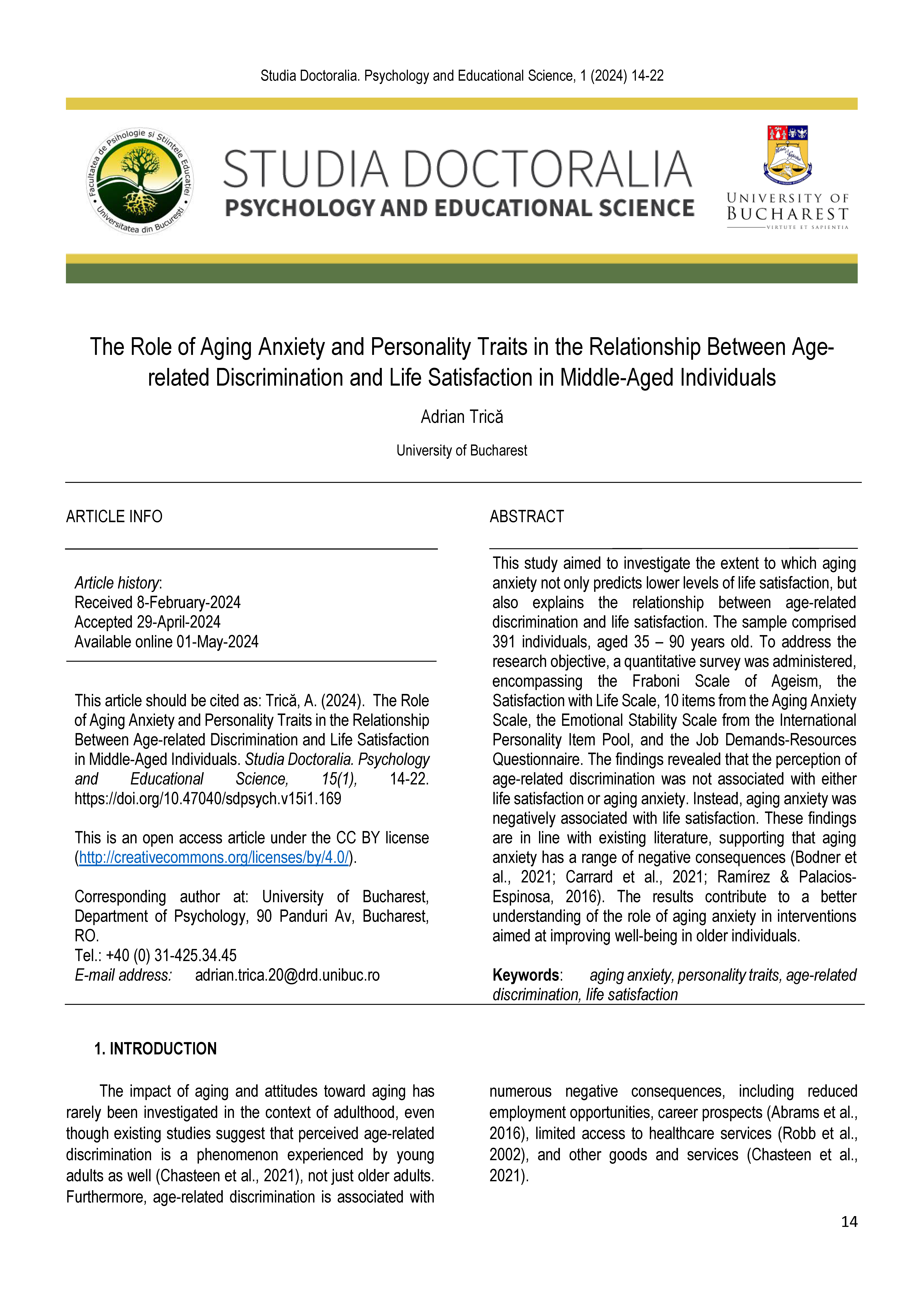The Role of Aging Anxiety and Personality Traits in the Relationship Between Agerelated Discrimination and Life Satisfaction in Middle-Aged Individuals
DOI:
https://doi.org/10.47040/sdpsych.v15i1.169Keywords:
aging anxiety, personality traits, age-related discrimination, life satisfactionAbstract
This study aimed to investigate the extent to which aging anxiety not only predicts lower levels of life satisfaction, but also explains the relationship between age-related discrimination and life satisfaction. The sample comprised 391 individuals, aged 35 – 90 years old. To address the research objective, a quantitative survey was administered, encompassing the Fraboni Scale of Ageism, the Satisfaction with Life Scale, 10 items from the Aging Anxiety Scale, the Emotional Stability Scale from the International Personality Item Pool, and the Job Demands-Resources Questionnaire. The findings revealed that the perception of age-related discrimination was not associated with either life satisfaction or aging anxiety. Instead, aging anxiety was negatively associated with life satisfaction. These findings
are in line with existing literature, supporting that aging anxiety has a range of negative consequences (Bodner et al., 2021; Carrard et al., 2021; Ramírez & Palacios- Espinosa, 2016). The results contribute to a better understanding of the role of aging anxiety in interventions aimed at improving well-being in older individuals.




